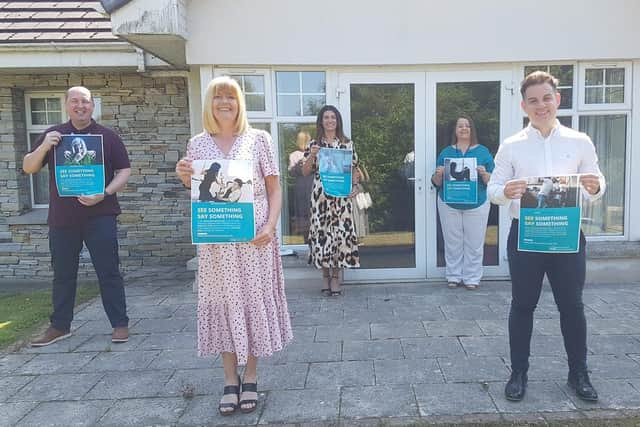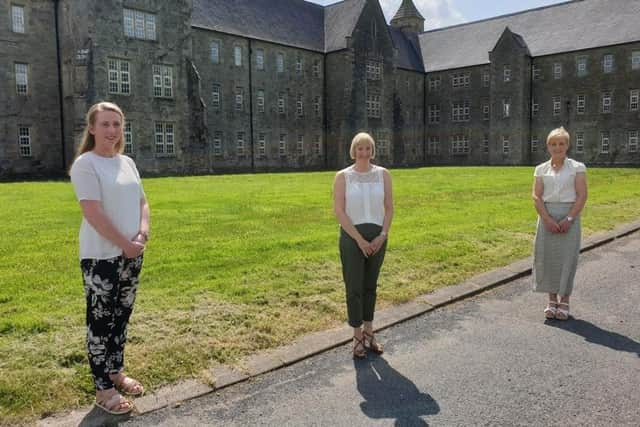‘Some vulnerable adults at risk of abuse due to loss of social contacts’


A new ‘See Something Say Something’ Adult Safeguarding Campaign, which aims to support vulnerable adults who are at risk of harm or who need protection, was launched by the Western Health and Social Care Trust this week.
Valerie Devine, Head of Service for Adult Safeguarding in the Western Trust explained: “Adult Safeguarding is about those adults who are at risk of harm or who need protection due to their vulnerabilities.
Advertisement
Hide AdAdvertisement
Hide Ad“An adult can have vulnerabilities for a variety of reasons, for example due to their age, disability, physical or mental health or their life circumstances.


“Through our new campaign over the coming months we will be highlighting the different types of abuse that can occur and we will be identifying ways for the public to spot it and report it - ‘See Something Say Something’.
“Unfortunately the pandemic has meant that many adults with vulnerabilities have had to endure long periods without social contact in order to keep them safe from COVID-19.
“In some cases this can result in adults who have vulnerabilities being more at risk of abuse.
Advertisement
Hide AdAdvertisement
Hide Ad“They are more at risk of abuse because of social isolation and the stress it causes. Additionally, for many there has not been the same level of face to face interaction as they may not get as many visitors to check in on them and as a result personal contact has reduced in many cases.”
Developed by the Trust’s Adult Protection Gateway Service, it is hoped that the new ‘See Something Say Something’ Adult Safeguarding Campaign will raise awareness of the many different types of abuse that can be faced by vulnerable people.
Ms. Devine continued: “We want to provide help and support to those adults who are vulnerable and who at are at risk of or who are suffering abuse.
“It is a worry that despite adults being more vulnerable to abuse there has been a reduction in the number of cases being brought to our attention.
Advertisement
Hide AdAdvertisement
Hide Ad“We would encourage everyone who has any concerns about a vulnerable adult in their community to report it to our team - ‘See Something Say Something’.
“If you see something that makes you worried or see an adult who is vulnerable being abused then please say something. Let’s tackle abuse together.”
Despite the COVID-19 pandemic the Western Trust Adult Protection Gateway service is fully operational, regardless of the restrictions in place.
If members of the team need to visit adults in any setting to ensure their safety and protection, they will do so in a safe way using the appropriate PPE, the Trust said.
Advertisement
Hide AdAdvertisement
Hide AdAbuse of adults who are vulnerable can take many forms and can include abuse by relatives, and can consist of:
• Neglect of their basic or health needs.
•Physical abuse, including hitting or injury.
•Financial abuse through scams and exploitation.
•Psychological abuse which can include, for example, name calling and bullying.
•Sexual abuse, for example, sexual contact without consent or when somebody can’t give consent and, increasingly, through social media.
•Abuse can also happen because of what is happening in the care setting they are in.
Advertisement
Hide AdAdvertisement
Hide AdAnyone can contact the Western Trust Adult Safeguarding Team between 9am and 5pm, Monday to Friday on 02871 611366 and ask to speak with the Person on Duty.
“At any other time we would advise members of the public to phone the Regional Emergency Social Work Service (RESWS) number on 02895 049999” the Trust stated.